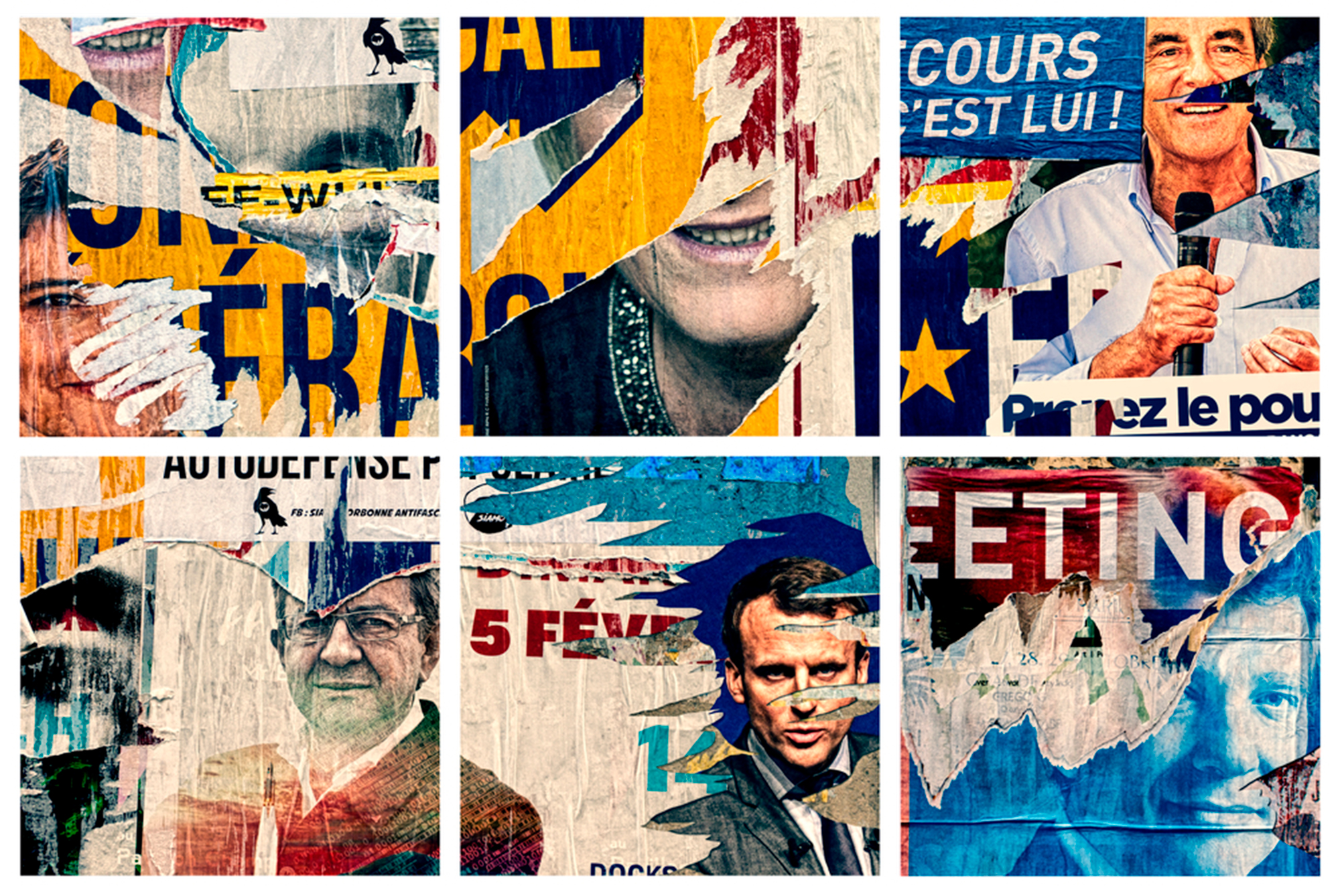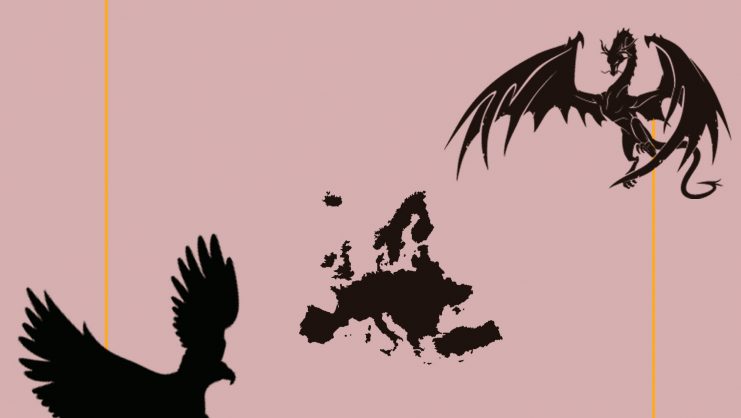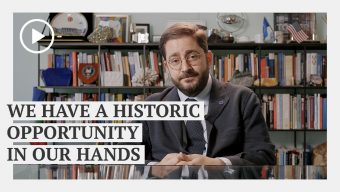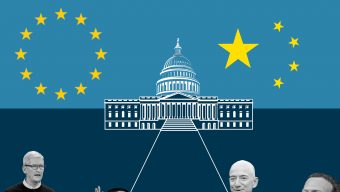The French will soon be called to the polls to elect the new (or not) President of the Republic and then, a few weeks later, they will choose the members of the National Assembly. The candidates aspiring to the Presidency of the Republic vary from the extreme left to the extreme right and are announcing themselves gradually. President Emmanuel Macron has yet to formally throw his hat into the ring but so far there are around 38 (yes that’s right, 38) who have. Of course, not all of them will be able to officially stand for election since they each need to obtain the support of at least 500 elected officials (councilors, members of parliament, senators, members of departmental or regional councils, etc.). The period for collecting signatures to support a run is from the tenth to the sixth week before the first round of the elections. This long list is likely to whittle down to roughly 15 possible candidates.
Thus, the outcome of the first round of the 2022 French presidential election is a big unknown, which makes it, by extension, difficult to predict the name of the future President. But let’s not get ahead of ourselves because, in this first round, the goal of all these candidates is to obtain the best or the second-best result so that they are eligible to run in the second and definitive round (unless someone obtains an absolute majority in the first round.) In 2017, there were 11 official candidates but only Marine Le Pen (Rassemblement National – Extreme right) and Macron (La République en Marche – Center right although the party claims to transcend the left/right divide) made it to the second round. Macron finally won with just over 66% of the vote in a turnout of just 75% of the electorate. Le Pen obtained almost 34%, which is equivalent to more than 10 million voters.
The context of the next elections in April 2022 will be different from that of 2017, not only because of the number and variety of candidates but also because of the socio-economic climate and the major uncertainty caused by the pandemic (including how the actual campaign itself can be run).
To some extent, issues related to the European Union have obliged candidates to reveal their positioning. It would seem that there is almost a majority of the so-called “sovereigntists.” Even Michel Barnier, the former EU negotiator for Brexit and an unsuccessful candidate in the primaries of Les Républicains has questioned the legitimacy of the European Union’s Court of Justice decisions. What is an undeniable fact of the last few months is that the European Union, which is striving to cope with the economic and health crisis caused by Covid-19, the conflict with the United Kingdom over fishing licenses in the English Channel, immigration, and the political standoff in Poland, has entered squarely, albeit indirectly, into the pre-electoral campaign.
France has always had an ambiguous relationship with the European project.
In order to gain a deeper understanding of the French political landscape surrounding these upcoming presidential elections, it is necessary to not only consider the traditional left-wing right-wing divide but also the “sovereigntist” and “pro-European” leanings of candidates. For example, Arnaud Montebourg, a former minister under the socialist President François Hollande, is clearly a left-winger while being deeply sovereigntist, a staunch defender of “Made in France” and highly critical of globalization and the European Union. Similarly, Jean-Luc Mélenchon, who is on the extreme left, is also very critical of the European project. Less surprising are the leanings of the three totally anti-European far-right candidates (Eric Zemmour, Marine Le Pen, and Florian Philippot), although Le Pen has actually softened her stance recently, especially in relation to what she announced during her 2017 campaign about dropping the euro and returning to the French franc.
On the other side, are the pro-Europeans – although many of them also advocate the reform of European policies and of the Union itself to tackle the economic, social, and environmental challenges it is facing. These candidates include Anne Hidalgo (socialist), Yannick Jadot (ecologist), Valérie Pécresse (Les Républicains, a conservative who was nevertheless sympathetic to the Polish Constitutional Court which questioned the principle of the supremacy of European Union law, the true cornerstone of the European Union project), and of course President Macron, who is probably the most pro-European of all.
This “sovereigntist” movement which cuts across the entire French political landscape is not new. In fact, there are different and even opposing positions within the same political party as to the role and extent of how much power the European Union should have. France has always had an ambiguous relationship with the European project. Despite being one of the EU’s original members, having the founding fathers of Robert Schuman and Jean Monnet among its countrymen as well as strong supporters such as Valérie Giscard d’Estaing, Jacques Delors, and François Mitterrand, France was one of the countries that rejected the European Constitution in 2005, after having approved years before via referendum by an extremely narrow majority (51.04%) the 1992 Maastricht Treaty, which undoubtedly marked a new phase in the European integration project, notably the creation of a European Union and the foundations for Economic and Monetary Union (EMU).
Ironically, by a coincidental twist of fate, the European Union will probably feature even more prominently in the election campaign, as France is set to hold the presidency of the Council of the European Union (the legislative body bringing together the ministers of the 27 Member States) for six months as of January 1, 2022. Since the 2007 Lisbon Treaty, presiding over the Council of the European Union is no longer as potent as it once was when the country holding the presidency also chaired the all-powerful European Council, which brings together the heads of state and governments of the Member States. However, all countries usually take advantage of this presidency to push those issues close to their heart. This is certainly what President Macron will be doing to boost the European project with specific proposals, many of them related to economic recovery, the ecological transition, and the taxation of the digital economy giants. It will also be an important opportunity for him to defend his European record and his key role in the creation of the European recovery plan. Without the impetus of Macron and Merkel, it is very likely that this plan would not have seen the light of day, or at least not as quickly. The French presidency of the Council of the European Union will help Macron to set himself apart from his opponents, as even the most pro-European of them cannot boast such a comprehensive track record. Obviously, the election campaign will not only revolve around the European project but, for once, it will occupy a prominent place on the French political agenda.
There is, of course, still some time before April 10, 2022, the day of the first round of the presidential elections. In any case, the outcome of these elections will have major implications for the future of the Union and France’s role in leading it. Given the multiplicity of candidates, it is very likely that the two candidates that reach the second round will do so by way of their attachment, or lack of it, to the European project.
© IE Insights.








